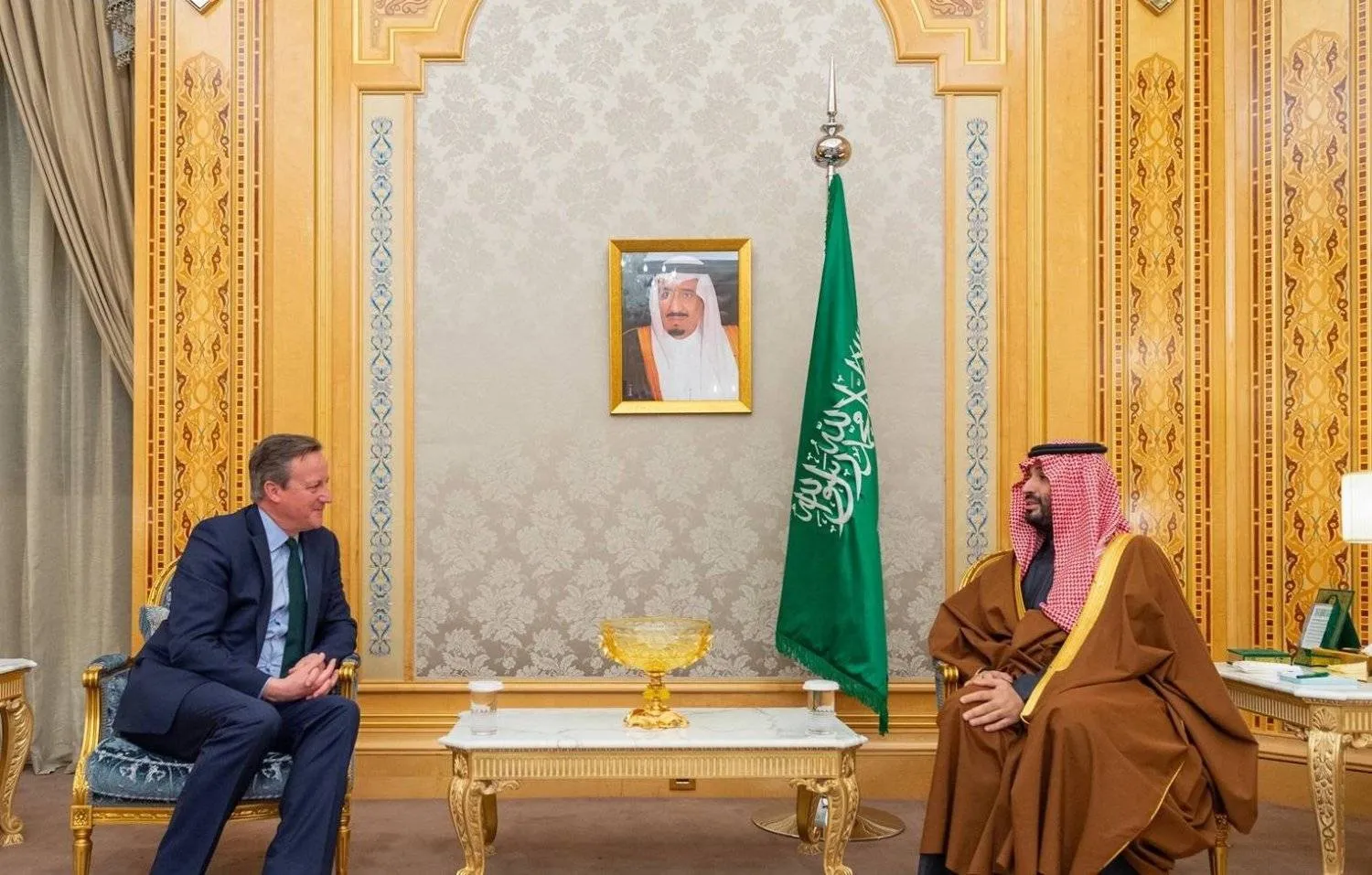Saudi Crown Prince Mohammed bin Salman held talks on Wednesday in Riyadh with British Foreign Secretary David Cameron, focusing on regional developments and efforts to achieve security and stability.
The two sides reviewed aspects of bilateral relations and means to strengthen and develop areas of joint cooperation.
The meeting was attended by the Saudi Ambassador to the United Kingdom, Prince Khalid bin Bandar bin Sultan bin Abdulaziz, Minister of Foreign Affairs Prince Faisal bin Farhan, and Dr. Musaed Al-Aiban, Minister of State and National Security Advisor, in addition to the British minister of Middle Eastern Affairs, Tariq Ahmad, and Neil Crompton, British Ambassador to Saudi Arabia.
Cameron also met in Riyadh with the head of Yemen’s Presidential Council, Rashad al-Alimi, who called on the international community to adopt stricter punitive measures against the Houthis.
He noted that those must include working for the implementation of international resolutions and supporting the legitimate government to restore the institutions, liberate Al-Hodeidah and prevent the flow of Iranian weapons to the rebel group.
Prior to his visit to Riyadh, Cameron held talks in Muscat with Oman’s Foreign Minister Badr al-Busaidi. In media statements, he noted that his country and Oman were working together to promote stability in the Middle East and alleviate tension.









